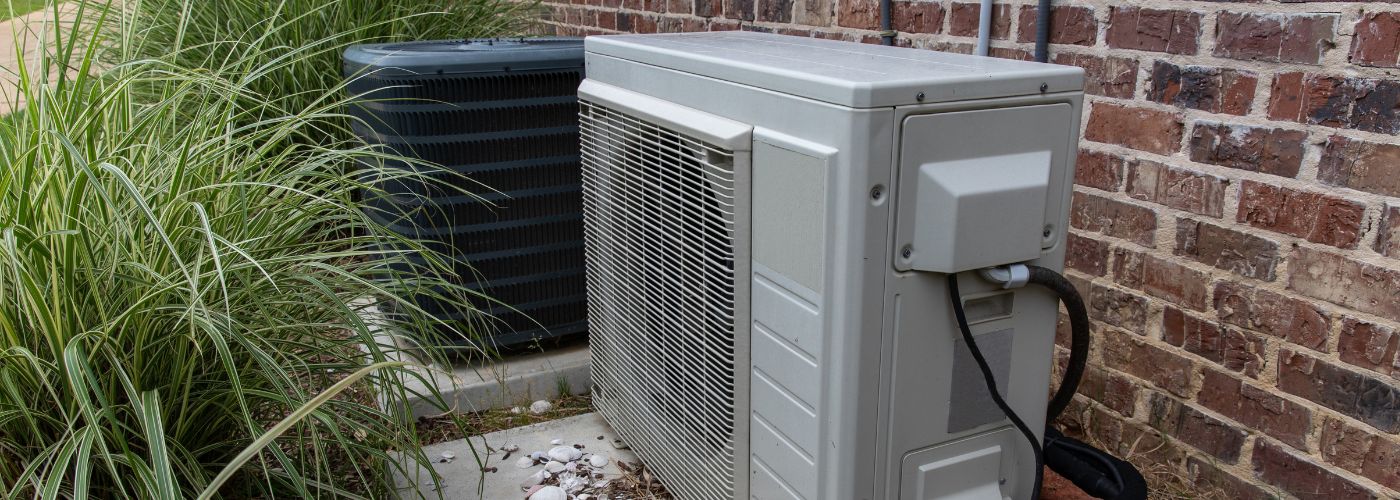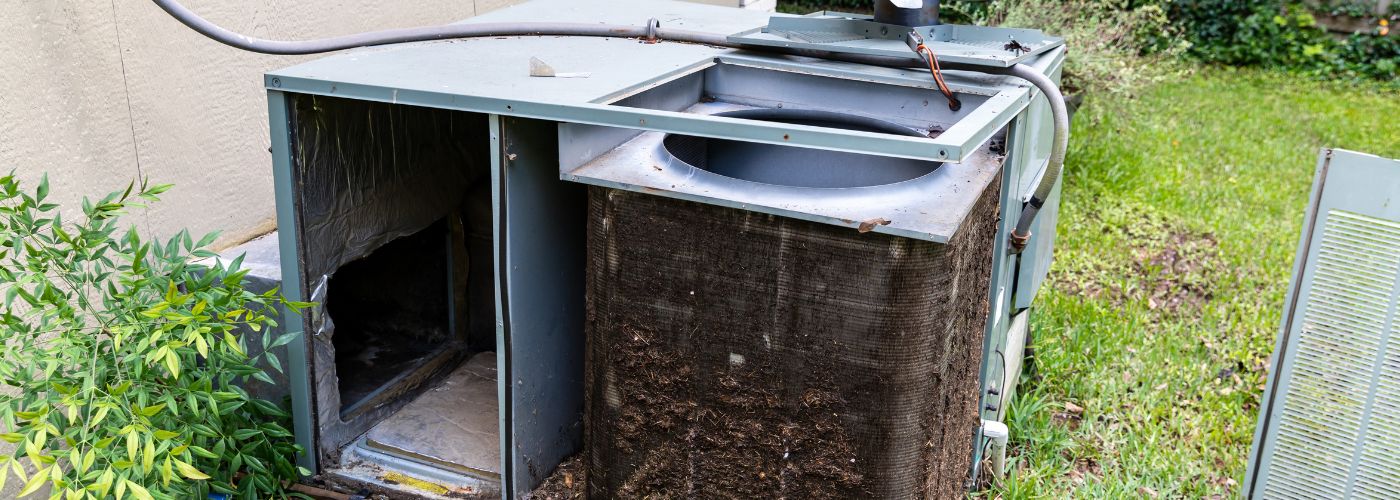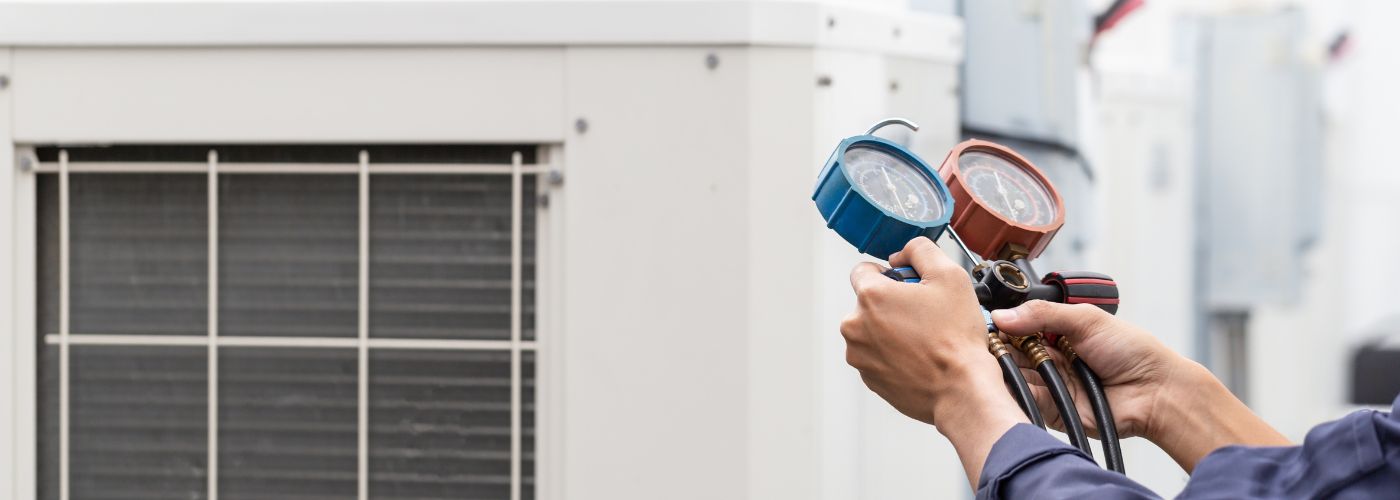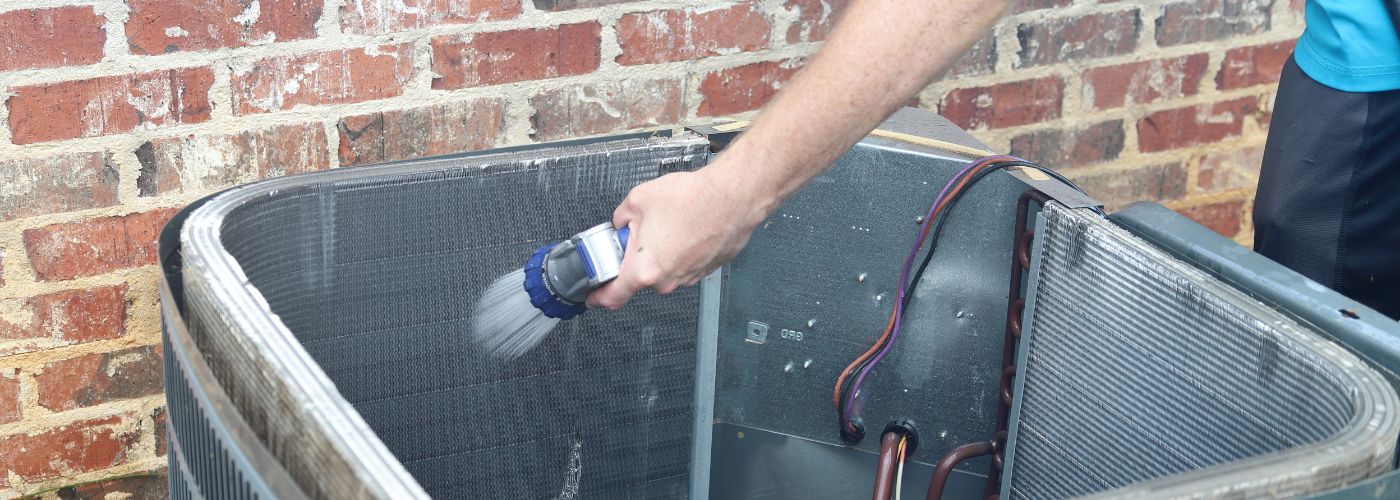Air conditioners are integral to keeping homes and businesses comfortable in hot, humid climates. Unfortunately, keeping air conditioning units running smoothly requires regular maintenance and cleaning, especially for AC condensers. But does this action really work? We’ll explore the benefits of cleaning an AC condenser and discuss potential ways to improve unit performance. We will also look at the potential risks associated with DIY cleaning and when it is best to call a professional technician.
Why Does An AC Condenser Need To Get Cleaned?

An air conditioner (AC) condenser plays a critical role in keeping your house cool and comfortable. It is an essential part of the cooling system that helps remove heat from inside your home and transfer it outside.
However, like any other component of an AC unit, the condenser requires regular maintenance to function efficiently. One of the most important tasks you need to perform is cleaning the condenser.
A dirty or clogged AC condenser can lead to a host of problems that can compromise the performance and lifespan of your unit. Dust, dirt, debris, and other contaminants can accumulate on the surface of the condenser coils over time, hindering their ability to dissipate heat effectively.
This buildup can also reduce airflow through the unit, causing it to work harder than necessary to maintain your desired temperature level. Routine AC maintenance, like AC condenser cleaning, ensures that it operates at peak efficiency throughout its lifespan.
What Are The Symptoms Of A Dirty AC Condenser?

When your air conditioning system is functioning properly, it keeps your home cool and comfortable all summer long. However, if the AC condenser becomes dirty or clogged, it can cause a variety of problems. Knowing the symptoms of a dirty AC condenser allows you to take action promptly before any damage is done.
One of the telltale signs of a dirty AC condenser is reduced airflow coming from your vents. When dirt and debris accumulate on the outside of the unit, they create a barrier that restricts airflow into your home.
As a result, you will notice weaker airflow coming out of your vents than usual. In addition to poor airflow, you may also experience warmer or less cool air being circulated throughout your home due to an overworked AC system.
Another symptom indicating a dirty AC condenser is increased energy consumption by the unit. Dirty AC condensers use twice as much energy to cool and heat your home compared to clean AC condensers. Not only does this increase energy usage, but also energy costs!
How Often Should I Get AC Condenser Cleanings?

When it comes to maintaining your AC condenser, cleaning is a vital part of the process. However, how often should you be getting your AC condenser cleaned?
The frequency of AC condenser cleanings can vary depending on several factors, such as the age of your unit, its location, and how often you use it. Generally speaking, experts recommend having your condenser cleaned at least once a year by an HVAC Company in Los Angeles. This will help prevent any buildup of dirt or debris that could cause damage to the system over time.
However, if you live in an area with high levels of pollution or have pets that shed frequently, you may want to consider having your AC condenser cleaned more often.
Can I Clean An AC Condenser Myself?
If your air conditioning system is not functioning properly, the first thing to check is the condenser. The condenser is a crucial component of your AC unit that helps to dissipate heat from inside your home.
If it becomes dirty or clogged, it can negatively impact your system’s performance and lead to costly repairs. However, many homeowners wonder if they can clean their AC condenser themselves.
The answer is yes, you can clean your AC condenser yourself if you have some basic knowledge and tools. First, turn off the power supply to the unit before attempting any cleaning.
Then remove any debris such as leaves, twigs, or grass clippings from around the unit using a garden hose or soft-bristle brush. Next, use a commercial coil cleaner or a solution of water and vinegar to gently wash away any dirt or grime from the fins of the condenser coil.
However, be extremely careful when cleaning since you can easily damage components if not careful. If you’re inexperienced or not comfortable with it, then it’s best to call an HVAC technician who can help you! Overall, keep all of these tips in mind to maximize your HVAC efficiency.
